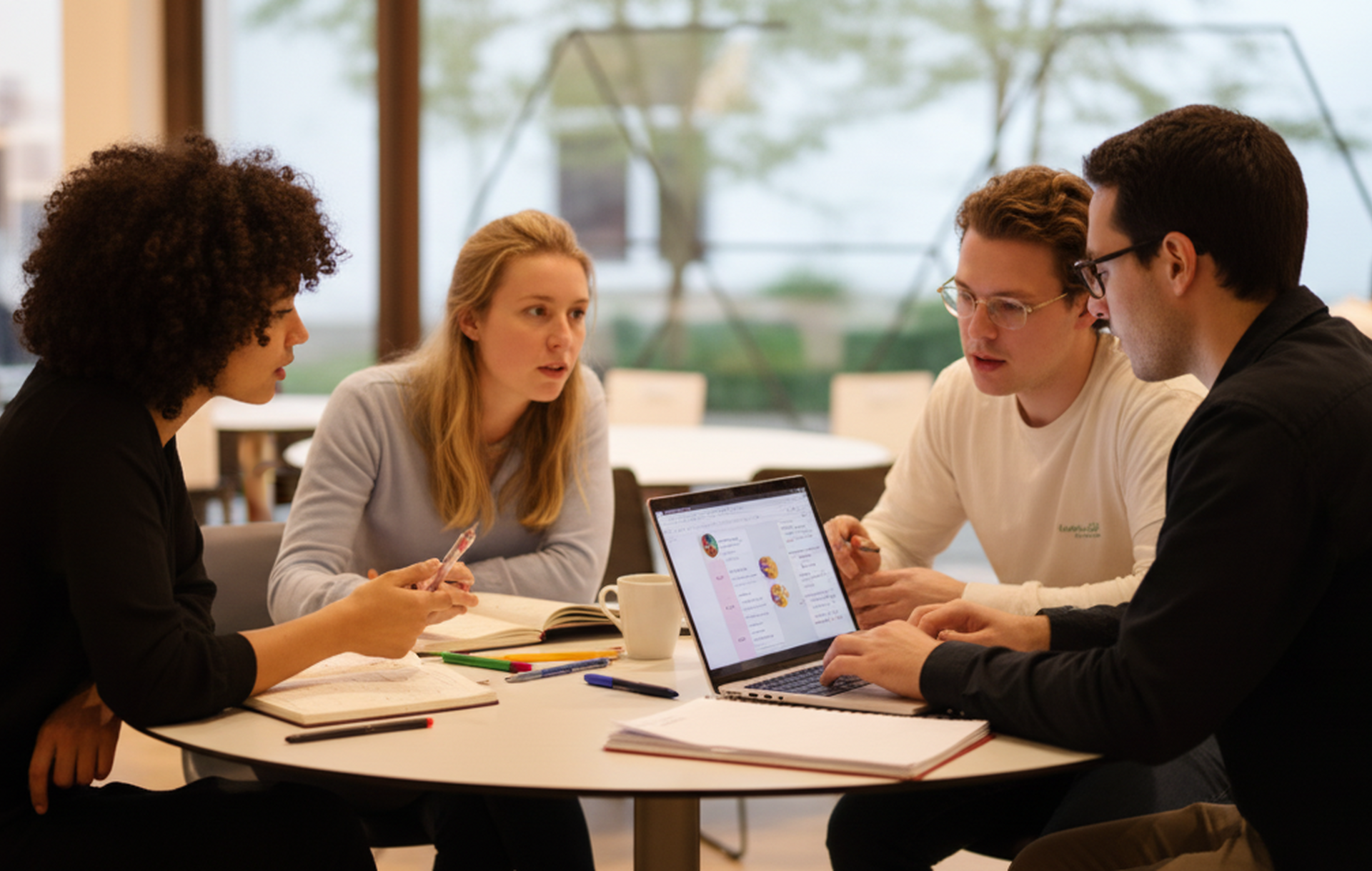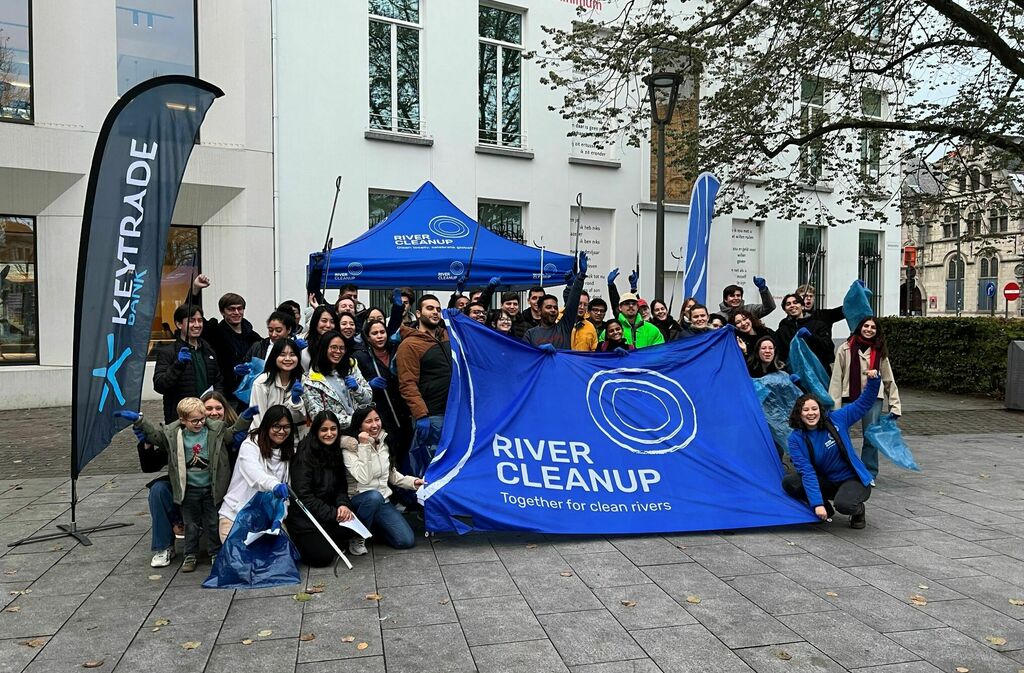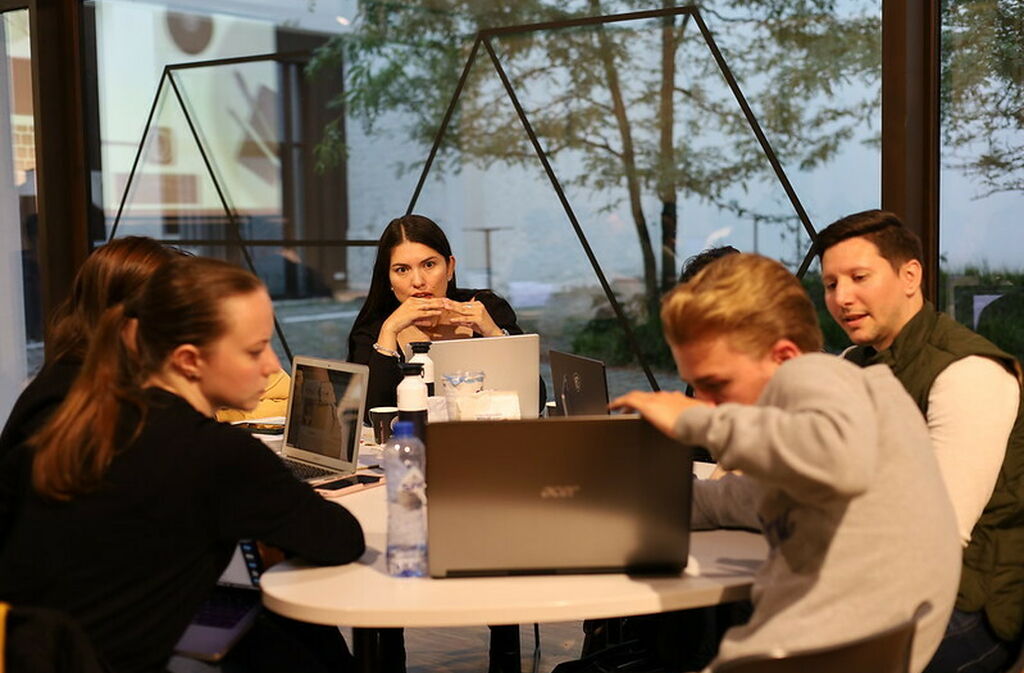The challenge: aligning AI with people and culture
Artificial Intelligence (AI) is rapidly reshaping the way organizations operate and compete. Argenta, a Belgian bank-insurance group with approximately 1250 employees in Belgium, the Netherlands and Luxembourg in the respective headquarters, , is well aware of the urgency to adopt this technology. Recently, the company has made some steps towards becoming an AI-native organization: launching a Data Science Team, establishing a Center of Excellence, and rolling out Microsoft Copilot, among others.
These initiatives revealed an important truth: success with AI is not just about deploying the technology. It’s about embedding it in a way that stays true to company values and culture, and empowers people. To address this challenge, Argenta invited AMS master’s students in Strategic Human Resource Management to design a practice-based framework for building and managing AI-native teams.
The approach: research with people at the core
The AMS master’s students embraced this challenge with a multi-method strategy that combined academic rigor with real-world insights. The core of their approach was empathy: understanding people’s perspectives, experiences, and needs. They engaged directly with stakeholders and employees through:
- In-depth interviews to understand stakeholder expectations and uncover deeper needs
- A survey of 100+ employees to assess the organization’s current level of AI readiness
- Informal “street interviews” in the company bistro, giving space for spontaneous input alongside formal data
- Desk research, including industry reports and benchmarking, validated continuously through dialogue and feedback loops with stakeholders and employees
Outcomes: practical tools for AI-native teams
This approach delivered a holistic view, revealing both enthusiasm and readiness for AI, particularly in creative and information-related tasks. At the same time, it highlighted the need for clear direction and more practical, accessible, and human-centered support to fully unlock AI’s potential.
Based on these findings, the student team developed:
- A clear, scientifically underpinned framework, to guide AI adoption in alignment with company values and culture
- A detailed, people-first implementation roadmap, including AI literacy pathways, job augmentation exercises, communication guidelines, and change management support
- A set of practical recommendations to effectively translate research into action
By engaging with the AMS master’s students, Argenta thus gained not only fresh perspectives and rigorous analysis, but also actionable tools. Together, they created more than a framework: they built a future-ready mindset that enables Argenta to embrace AI not just as technology, but as a catalyst for human-centered innovation.




